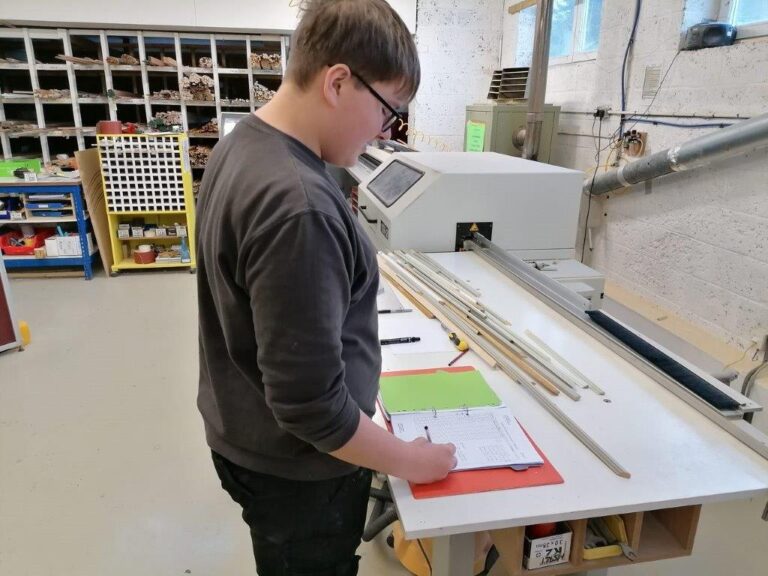Skills, Knowledge, Experience and Behaviours (SKEB)
Definition of Competence – Individual competence
Regulations define competence as having the appropriate skills, knowledge, experience and behaviours (SKEB), and requires all individuals carrying out any design, construction or refurbishment work to be competent to undertake the role to which they are appointed.
BS8670 Part 1 defines competence “for an individual to be considered competent means that they need to have the appropriate skills, knowledge and experience, combined with appropriate behaviours, to be able to fulfil their defined role, function or activity and carry out appropriate tasks. This is sometimes referred to in shorthand as SKEB.
Further definitions of SKEB:
Skills – individuals can demonstrate the following:
- the ability to carry out tasks to the required specification/expectation
- the ability to carry out the task safely
- the ability to carry out the task efficiently (whilst maintaining safety)
- the ability to find solutions to problems
- ability to interpret written or spoken instructions and apply these to the task.
Knowledge – individuals understand the following:
- how to apply their skills
- how to be safe and to keep others safe when working
- legislation and guidance
- how the tools and equipment work
- how materials should be handled and used
- the hazards and how they can be controlled
- when to seek help from more experienced colleagues
Experience – many definitions of experience can be found, as can be seen by the following:
- the practical knowledge, skills, and understanding gained by an individual through direct involvement in tasks, activities, or roles over a period of time
- how well an individual can apply theoretical knowledge and skills in real-world situations
- consistently be able to meet and demonstrate the skills, knowledge and behaviours contained within the competence framework in the workplace
Behaviours – can be defined as the way in which an individual acts or conducts oneself towards others and can be found in the following:
- how they approach work and problem solving
- working safely and a role model for the safety of others
- working with respect and inclusivity
- working as part of the team
- how they adapt positively to deal with different situations
- willingness to learn and improve skills, knowledge and behaviour

Competence Standards
In the Built Environment in England, there are two standards that inform qualifications, training, etc:
- Occupational Standards – developed, with industry, by the Institute for Apprenticeships and Technical Education (IfATE) or, from the 1st May 2025, Skills England. These inform apprenticeships, T-Levels, technical qualifications, etc.
- National Occupational Standards (NOS) – developed, with industry, by the Standard Setting Body, such as the Construction Industry Training Board (CITB). These inform Vocational Qualifications, previously called NVQ’s.
These standards are like a recipe or an instruction manual, following the directions ensures that the outcome is of good quality and meets the needs of the people undertaking that activity.
The standards help to ensure that training programmes can be written to a consistent standard, they can also be used for producing toolbox talks and help HR Teams to create job descriptions to recruit new people to the sector.
Just as a recipe or instruction manual should be reviewed periodically for accuracy, the standards are reviewed on a regular basis to ensure they reflect current practices, legislation, terminology etc. And if required, they will be revised to ensure they remain fit for purpose.
These standards are, as explained above, are developed with industry.
An Occupational Standard defines the standard as having Knowledge, Skills and Behaviours. A NOS contains descriptions of skills and knowledge but do not contain information around experience and seldom contain embedded behaviours. Neither are aligned with the definition of competence as per regulations. It is noted, however, that the Occupational Standards inform early-stage qualifications, which do not always include the need for Experience (apprenticeship and T-Levels).
Prior to the launch of the Industry Competence Steering Group’s Super Sector programme, there were few instances of standards aligning. This is why the Super Sector programme and work of the ICSG is so important.
FAQs
What is an “Occupational Standard”?
An “Occupational Standard” outlines the skills, knowledge and behaviours required for a specific job role. These standards are for skilled occupations which require practical workplace experience and training or education of at least 12 months for a typical new entrant to become competent.
Developing an Apprenticeship Occupation Proposal
The development of these standards are led by a group of employers and underpin apprenticeships (England), technical qualifications, t-levels etc. The British Woodworking Federation works with stakeholders (employers, tradespeople, trainers, assessors) to determine and agree what constitutes competence. As a group, we will scrutinise the content and outcome of the course and if satisfied, ‘rubber stamp’ the course and publicise that it meets the competence requirements of industry. In addition, we will also support the issuing of a ‘card/skills passport’ on successful completion of the course, so that individuals can evidence their competence when working on a construction/commercial or domestic site. To ensure that a course continues to meet the needs of industry it would need to have a quality assurance and auditing system which provides confidence that the course can deliver the industry agreed outcomes.
What is a National Occupational Standard?
“National Occupational Standards (NOS) are statements of the standards of performance individuals must achieve when carrying out functions in the workplace, together with specifications of the underpinning knowledge and understanding.”
About National Occupational Standards (NOS)
Like the Occupational Standard, the NOS are a benchmark for competence decided by industry stakeholders. The development of these standards is led by a group of employers from across the four home nations. The development of NOS is regulated via the four home nations and must meet specific criteria to be approved. Once approved by the four home nations they can be viewed on the NOS Database. The NOS underpin Vocational Qualifications and in some cases, knowledge and training courses. The British Woodworking Federation works with stakeholders (employers, tradespeople, trainers, assessors) to determine and agree what constitutes competence. As a group, we will scrutinise the content and outcome of the course and if satisfied, ‘rubber stamp’ the course and publicise that it meets the competence requirements of industry. In addition we also support the issuing of a ‘card/skills passport’ on completion of the course, so that individuals can evidence their competence when working on a construction/commercial or domestic site. To ensure that a course continues to meet the needs of industry it would need to have a quality assurance and auditing system which provides confidence that the course can deliver the industry agreed outcomes. Although NOS contain descriptions of skills and knowledge, they do not contain information around experience and seldom contain embedded behaviours. As such, they are not fully formed descriptions of competence as described in the regulations. In Scotland NOS are used directly when developing SVQs without content change. An assessment strategy would also need to be developed for a qualification. All SVQs use an Assessment Strategy that has been approved by the Scottish Regulator.
Are National Occupational Standards qualifications?
No – NOS are used to influence the content and development of qualifications and training courses in many ways. In England, Wales and Northern Ireland the NOS are used to build NVQ units and, along with the NVQ structure, are offered to learners through Awarding Organisations. The NVQs are regulated and are viewable on the Ofqual directory. In Scotland the NOS are used directly as the units for the SVQ. The SVQs are also regulated and can be viewed through the SQA Accreditation approved qualification directory.
Who “owns” National Occupational Standards?
The NOS Governance Group (Scotland, Wales and Northern Ireland) are the custodians of the National Occupational Standards. Standard Setting Body’s such as CITB will facilitate the development and maintenance of the NOS on behalf of industry.
What are NVQs / SVQs?
They are qualifications that incorporate the skills and knowledge that are derived from industry agreed NOS and qualification structures. The NVQs and SVQs are regulated by various qualification regulators across the home nations, OFQUAL (England) SQA (Scotland) QIW (Wales) and CCEA (Northern Ireland).
They are subject to quality control measures and can only be awarded by regulated awarding organisations. Those awarding organisations are responsible to the regulator for the standard of provision and have rules that they must follow about how they operate. They have to be delivered against an agreed assessment strategy which sets out how assessment should take place. You’ll sometimes (especially in England) see these referred to as occupational qualifications.
Is an NVQ still a thing?
VRQs are study-based, structured-training programs which focus on the development of practical skills and knowledge for a specific subject or a certain job. Learners will undertake written tests as well as being assessed on workplace-related activities. There are multiple skill levels when it comes to VRQs.
NVQs are competence based, work-related qualifications, which are assessed using workplace evidence. They do not require undertaking any specific learning program or taking formal written examinations.
Qualifications that appear on regulated framework but aren’t occupational. These generally aren’t based on NOS (or may only be based on part of a NOS). Commonly, they’re knowledge qualifications. These are a mixed bag:
- They may be designed with industry input and consultation, although this often isn’t recorded or confirmed through official channels
- They may be accredited on behalf of a single organisation
What are ‘Customised Awards?’
A customised award is a unique qualification designed to meet an organisation’s specific needs, and quality assured by an Awarding Organisation. The qualification may be certificated and quality assured by a recognised UK awarding body.
They may support the following:
- responding to local skills improvement plans (LSIPs) and regional skills gaps
- co-designing a qualification to meet an employer/sector need
- fulfilling a competency requirement with a more tailored solution than what is available from the regulated market
- delivering the training course element of a Skills Bootcamp programme
- create progression routes
- stand out from the competition
Are they recognised qualifications?
Although they may be recognised by the Awarding Organisation and employers that use the qualifications, they may not be recognised by the wider industry or Regulatory or Standard Setting Bodies (SSBs). In Scotland they can be placed on the Scottish Credit and Qualifications Framework, (if they have been through a credit and levelling exercise) giving it an official SCQF level and credit points.
Who owns them?
They are owned by the organisation that designed them, this could be an employer, federation/association, or an individual business. There may be instances where a business could make a profit running these Customised Awards.
How is the content quality assured?
The content, delivery and assessment can be quality assured by the Awarding Organisation who will provide the certificate at the end of the training programme.
How are qualifications created:
Awarding Organisations (AOs) may work with Standard Setting Body’s (SSB) to create qualifications. This usually follows the development and review work that has been carried out by the SSB and industry. The AO will develop the materials to support the learner’s journey, plus they will produce the assessment criteria and any guidance documentation that is required. AOs may also work with individual organisations to create a qualification. The AOs may use NOS as the basis for qualifications units, but they may also create a qualification that is based on feedback and input from localised employers and stakeholders to create VRQs (see above) that are not necessarily based on NOS.
So Standards are not the “competence”?
Standards such as NOS define some of the competence requirements for a role or an activity to allow others to develop appropriate training. They set out what needs to be evidenced when an individual’s competence is being assessed.
It is the role of the Qualification Assessor to determine whether an individual is demonstrating that the competence requirements as set out by the Standards are being met.
The Standards do not dictate training but any training designed to support the journey to competence must underpin the Standards. If the training does not underpin the Standards then it is unlikely that an individual would pass the competence assessment.
What’s the difference?
The difference isn’t easy to understand, which is one of the problems with the structure as it currently is. This is something that the Industry Competence Steering Group and the Super Sector programme is trying to resolve. Differences:
- Different development organisations create the various standards.
- Often different employer groups, Trade Associations, etc are involved in each.
- An Occupational Standard is less granular than the National Occupational Standard. • NOS are grouped into suites according to what they are for. Alongside the NOS, approved qualification structures are created explaining how the NOS are grouped together into qualifications / pathways etc, what’s mandatory, what’s optional, how many etc.
- At times, in the development of the standards, the alternative standard will be used as a reference point.
- Occupational Standards defines the standard as having Knowledge, Skills and Behaviours. It is noted, however, that the Occupational Standards inform early-stage qualifications, which do not always include the need for Experience (apprenticeship and T-Levels).
- A NOS defines the standard as having Skills, Knowledge and Experience. Neither are aligned with the definition of competence as per regulations.
Is there a hierarchy of standards?
Strictly speaking, there isn’t a hierarchy. Education policy is devolved. England has moved towards the occupational standards model employed by IfATE. Other nations have stuck with NOS. In Scotland, the NOS are taken directly and used as a basis for qualifications built on those structures. In England, qualification units are created which often add more context and detail around how the statements in the NOS should be measured. Either way, vocational qualifications are produced as an output – SVQ/NVQ.
Why can’t they align? It’s so confusing!
We know it is confusing, the Super Sector programme is trying to tackle this by identifying the Skills, Knowledge, Experience and Behaviours required for every occupation. Once identified, the SKEB can feed through into all structures, but be the baseline / the first port of call for competence standards, so that no matter the route taken, the same competencies and the same level of competence is gained. We are also trying to make it simpler and more direct.




